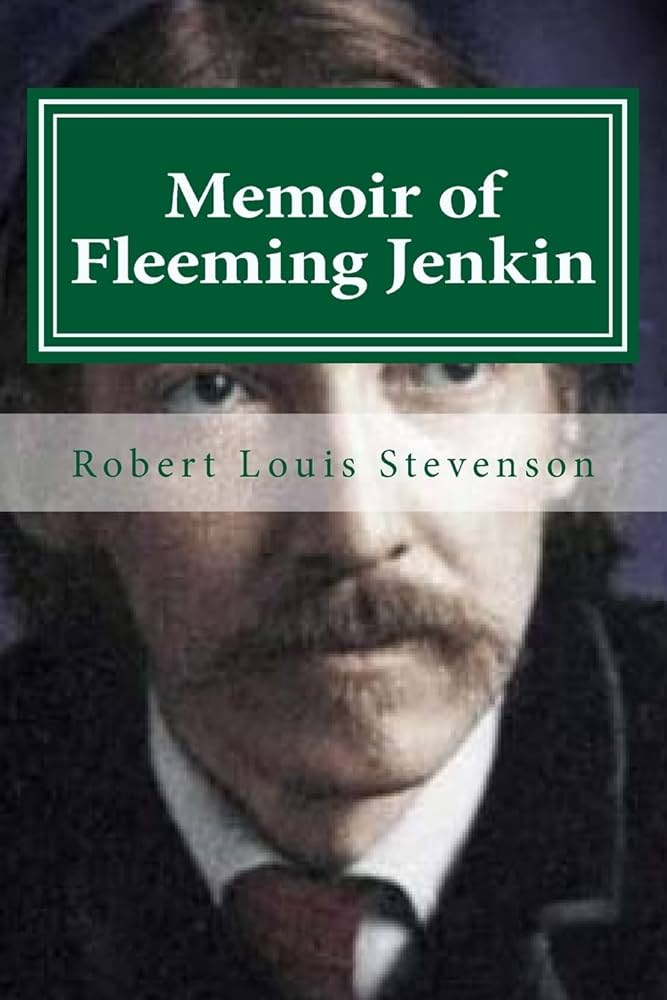Chapter V — Memoir of fleeming Jenkin
byChapter V — Memoir of Fleeming Jenkin captures the mature years of Fleeming’s life in Edinburgh, a city known for its blend of intellectual rigor and social charm. The city’s dual character—academic and argumentative, yet steeped in tradition—was an ideal backdrop for someone with Fleeming’s depth. While many of his peers found their leisure in golf or the prestigious archery clubs, he maintained a certain distance from these social norms, opting instead to invest his energies in family, invention, and civic duty. His avoidance of mainstream recreation was not out of disdain, but due to a focused desire to spend time where he felt most useful and fulfilled. In doing so, he forged a distinct path, marked by meaningful engagement over mere social conformity.
His household life was filled with affection and creativity. Within his home, Fleeming nurtured a rich culture of learning, storytelling, and shared experiences. His enthusiasm for private theatricals was more than entertainment—it was a space for expression, discipline, and joy. These performances involved both family and close friends, strengthening bonds through collaborative artistry. In these moments, Fleeming came alive not as an engineer or lecturer, but as a husband and father relishing the chance to build lasting memories. Simultaneously, his fascination with emerging technologies like the phonograph reflected an ever-curious mind, eager to test, understand, and share innovation with those around him.
Beyond family and science, Fleeming remained devoted to public welfare. His work with sanitary associations addressed pressing health concerns of the time, aiming to elevate living standards across social classes. He saw this not as charity but as responsibility—a natural extension of being part of a society. Fleeming’s involvement in these organizations was hands-on, and his technical knowledge gave him credibility among reformers and municipal leaders alike. Even when public impact was modest, his efforts demonstrated a principled commitment to improvement. These endeavors reflected the same precision and passion found in his engineering work. In every sphere, Fleeming combined logic with heart, forming a rare and respected integrity.
His personal reflections reveal a man deeply thoughtful about belief, morality, and the heroic in human nature. Though his religious views were quiet and evolving, they guided his sense of duty and compassion. He admired strength of character more than physical courage and found inspiration in stories where integrity overcame adversity. Literature was not simply a leisure pursuit but a wellspring of ethical insight and artistic pleasure. He gravitated toward writers whose ideas challenged yet uplifted him, blending emotional resonance with intellectual satisfaction. This selective and discerning taste extended to his personal relationships, which, though not numerous, were remarkably deep and lasting.
Among his correspondents, none stood out more than M. Trelat, with whom Fleeming shared a steady and warm friendship. Their letters reflected mutual respect, trust, and a shared enthusiasm for life’s complexities. Through such relationships, Fleeming’s social world was kept intimate but rich. He did not seek popularity in the conventional sense, yet those who knew him valued him immensely. His ability to connect across cultural and professional boundaries was grounded in sincerity. Whether in conversation or correspondence, he spoke with clarity, often turning complex ideas into digestible and inspiring thoughts. These qualities made him an admired figure in his circles, even if he remained reserved from public acclaim.
Throughout this chapter, Fleeming emerges as a man balanced between invention and introspection. He achieved public success in academia and engineering, but he measured his life’s value through quieter victories: raising thoughtful children, nurturing friendships, contributing to public health, and expanding human understanding. His character, as recalled through this narrative, is defined not just by what he built, but by the principles that shaped how he lived. He managed to remain earnest without being solemn, clever without condescension, and diligent without becoming inflexible. In the intersections of his private joys and public duties, Fleeming left behind a legacy built not only on wires and machinery, but on human connection and the steady pursuit of betterment. His life speaks to the enduring truth that meaningful impact often begins in the heart, long before it reaches the world.


